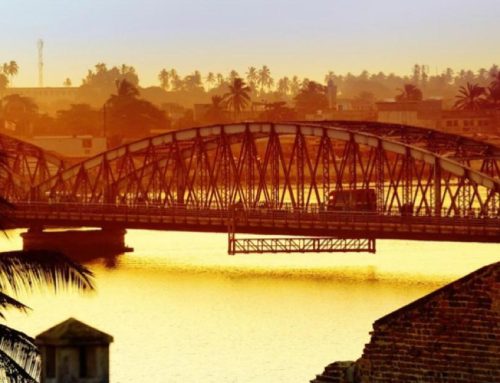Introduction: Africa’s fastest growing region today comprises a group of French-speaking countries – all members of OHADA, a system of unified business law spanning 17 African States. OHADA’s success, unique in depth and reach, underlies the region’s economic integration and is a key driver for international investments.
The IMF’s 2023 GDP growth projections highlight Senegal (8.1%), Niger (7.3%), the Democratic Republic of Congo (DRC) (6.7%), Rwanda (6.7%), Côte d’Ivoire (6.5%), Benin (6.2%) and Togo (6.2%) as Sub-Sahara’s fastest growing economies.
All, except Rwanda, are members of OHADA (‘Organisation pour l’harmonisation en Afrique du droit des affaires’/‘Organisation for the Harmonization of Business Law in Africa’), a unified system of business law – unique in the world and uniquely attractive for foreign investors in Africa.
OHADA countries’ outperformance is further confirmed in the World Bank’s projections for 2023/24: Senegal (8%/10.5%); Niger (7.1%/10.1%); Côte d’Ivoire (6.8%/6.6%); Democratic Republic of Congo (DRC) (6.4%/6.6%); Benin (6.2%/6.0%); Togo (5.6%;6.4%) here again top the list for Sub-Saharan Africa.
The OHADA treaty was signed in 1993. Today, 17 African States are OHADA members – and more countries are considering joining. OHADA consists of the 1993 Treaty and 10 “Uniform Acts”, covering 10 legal areas: general commercial law; commercial companies and economic interest groups; security interests; arbitration; mediation; accounting and financial reporting; simplified recovery procedures and measures of execution; insolvency; cooperative companies; contracts for the carriage of goods by road. Together, they form what is known as “OHADA Law”. OHADA law follows a Civil Law model – used in the majority of African countries, in the majority of South East Asia and in continental Europe. It is often distinguished from Common Law used in former British colonies – which, despite similarities across jurisdictions, lacks OHADA’s depth of integration, uniformity and consistency.
OHADA law has grown into Africa’s dominant legal system, applying seamlessly across an uninterrupted stretch of land from North Africa (in the North) to the Atlantic (in the West) and the Great Lakes region (in the South). In the East, OHADA is applied by the Comoros, in the Indian Ocean. Together, OHADA countries represent a market of close to 300 million people.

(Source: Association pour l’Unification du Droit en Afrique (UNIDA))
OHADA was created at a time when local governments feared perceived instability as a cause for underinvestment. The avowed objective of OHADA is in effect “to address the legal and judicial insecurity in Member States”. “[I]t is undeniable that legal balkanization and judicial insecurity were the key impediments to the economic development of the continent. Harmonizing economic laws and improving the functioning of judicial systems in Member States were therefore necessary to restore investor confidence, facilitate trade between countries and develop a vibrant private sector. […] Twenty-two years after the creation of OHADA, the result is a huge work of legal unification in its Member States. OHADA is therefore an important tool for the development of business law, the creation of an integrated legal space conducive for a viable and lively economic space. OHADA can be a role model in Africa and beyond since the Caribbean countries have already implemented a similar project.” OHADA law is seen by international investors and practitioners as a key determinant for investments across the OHADA region. It is a catalyst for the region’s ‘bankability’ on the international markets. It has enabled the emergence of regional champions. It is a unique tool for stability, knowledge sharing and economic growth. OHADA ensures a single, uniform system of business law – and full enforceability of judicial decisions across all OHADA jurisdictions. The OHADA system is in effect not limited to legislation. The OHADA Court of Justice and Arbitration (CCJA), based in Abidjan (Côte d’Ivoire), acts the jurisdiction of last resort for all judicial proceedings within the scope of the Uniform Acts – as do courts of cassation, in Civil Law systems. The Court’s decisions and arbitral awards are directly applicable and enforceable in all OHADA members States, even if there are inconsistent provisions in domestic law. The Court therefore ensures consistency across the OHADA zone.
Other regional institutions add to the zone’s legal stability and attractivity. These for instance include the Cima Treaty, which today groups 15 OHADA member States and which harmonises insurance law.
OHADA countries benefit from unicity of currency and language. All OHADA countries (except the Comoros, the Democratic Republic of Congo (DRC) and Guinea-Conakry) use the CFA Franc, affiliated to one of the region’s two customs and economic unions, ie. the West African Economic and Monetary Union (known by its French acronym ‘UEMOA’) and the Economic and Monetary Community of Central Africa (‘CEMAC’).
All OHADA member countries also share French as a common official language – except for Portuguese-speaking Guinea-Bissau, where French is commonly used in business – as is the case in more than half of African countries.
The OHADA zone is today among the world’s fastest growing regions. Three OHADA countries (ie. Côte d’Ivoire, Togo and Benin) sit on the world’s fastest growing urban area along the Gulf of Guinea, a 965-km stretch of land that is expected to host 40% of the world population by the end of the century. The OHADA zone counts Africa’s largest metropolis – Kinshasa, the Democratic Republic of Congo (DRC)’s capital city, projected to become the world’s biggest city by 2050. OHADA countries, such as Senegal and Côte d’Ivoire, are regularly shortlisted as regional hubs for global actors looking to enter West, Central and North Africa – the European Union (EU)’s gateway. Côte d’Ivoire (with a GDP per capita at US$ 2,579 in early 2022) is already West Africa’s richest country, ahead of Nigeria and Ghana, and (continent-wide) ahead of Kenya – while Senegal (at US$1,606) is also expected to overcome Nigeria in the near term. These successes echo the precited 2023 IMF and World Bank projections as proof of the region’s dynamism. Senegal’s impressive growth is specifically highlighted – as is the country’s new oil and gas industry. As Europe courts the continent for replacement gas supply, investments and markets, and the EU’s center of gravity makes a quiet shift West/South – towards Africa, OHADA countries take center stage and look to Asia to cement their position as an emerging global marketplace.
Delphine Constantin is the Founder and Managing Director of D Sy Law, a Singapore-registered independent international law firm focused on Africa and Africa-Asia investments. Delphine Constantin is dual-qualified under both Civil Law and Common Law – and has specific experience in African Civil Law/French-speaking jurisdictions. She is a fluent French speaker. Delphine Constantin can be contacted at: dc@dsy-law.com
This note does not constitute legal or any other form of advice from Delphine Constantin or D Sy Law and is provided for general informational purposes only. Readers should seek legal advice with respect to any particular legal matter.






